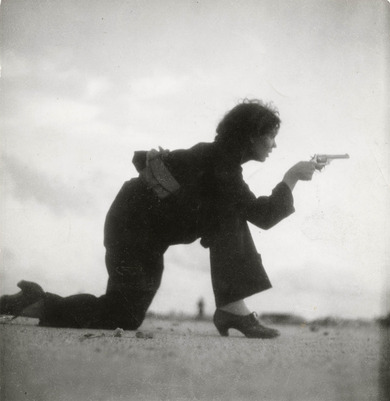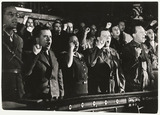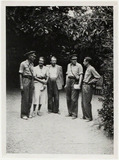Gerda Taro: Republican militiawoman training on the beach outside Barcelona, photograph, 1936
Gerda Taro: Republican militiawoman training on the beach outside Barcelona, photograph, 1936
For a long time the photographer Gerda Taro was simply thought of as the beautiful lover of the great photographer and war correspondent Robert Capa – unfairly, as we know now thanks to many years of intensive research. The spectacular rediscovery in 2007 of a cardboard box containing 126 rolls of film, which has become known as the “Mexican Suitcase”, confirmed Taro’s skills as a photographer in an impressive fashion. Capa, Taro and the Polish photographer David Seymour (known as “Chim”) each took approximately one third of the photographs. They underscore the importance of Taro as a photographer. Many photographs that had for a long time been incorrectly attributed to Capa could finally be identified as Taro’s work.
Gerda Taro’s photography is characterized by a drama that arises from a physical as well as an emotional closeness to the photographed objects. Dynamic camera angles intensify this effect. Taro and Capa did not position themselves as neutral observers. They clearly took the side of the Republicans in their photographs of the Spanish Civil War. Their photographic style has a heroising effect: the silhouette-like body of the young woman stands in stark contrast to the cloudy sky in the background.
The fame that Taro gained as a courageous female war correspondent lives on. The novel Esperando a Robert Capa (Waiting for Robert Capa, 2009) by the Spanish writer Susana Fortes and the song Taro (2012) by the British band Alt-J testify to this. Several monographs have been published in recent years on Taro and Capa.




